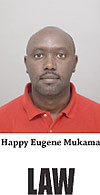The recognition of a foreign rendered judgment occurs when the court of one state accepts a judicial decision rendered by courts of another state as a res judicata. In other words, matters which have already been decided by a foreign court are treated as conclusive by the courts in another country.


The recognition of a foreign rendered judgment occurs when the court of one state accepts a judicial decision rendered by courts of another state as a res judicata.
In other words, matters which have already been decided by a foreign court are treated as conclusive by the courts in another country.
Once the judgment is recognized, the party which was successful in the original case can then seek its enforcement.
In doing so, the states are relying on the principle of comity and reciprocity which requires equal respect shown to judgments made by two different sets of courts, i.e. the courts of both states must treat the judgments as equally binding and enforceable in the two jurisdictions.
In Rwanda, Art. 8 of the preliminary title of the Civil Code stipulates that the laws, judgments of foreign countries as well as conventions and private provisions can have no effect in Rwanda in case they are contrary to public policy, social interest or public morals of Rwanda.
The power to execute foreign rendered judgments in Rwanda is vested with the High Court of the Republic. The High Court executes these judgments when: The foreign judgment does not contradict public order or basic legal tenets of Rwandan public laws; if the case was finally heard and determined in accordance with the laws of the country of origin, if a copy of the judgment is by all means authentic in accordance with laws of that country and finally, if the right of defense was respected.
International justice relies on the principle of comity and reciprocity in recognition and enforcement of foreign rendered judgments.
The principle of comity refers to the idea that courts should not act in a way that demeans the jurisdiction, laws, or judicial decisions of another jurisdiction.
Part of the presumption of comity is that other jurisdictions will reciprocate the courtesy shown to them. It requires that judgments of a particular jurisdiction will be recognized and enforced by a forum state only to the extent that the other jurisdiction would recognize and enforce the judgments rendered by that forum state.
Under the principle of comity, a country is not obliged to recognize and execute a judgment from another country, it is done out of free will or mutual trust.
Problems in recognition and enforcement of foreign rendered judgments arise when despite the principle of comity and reciprocity, a country deliberately refuses to recognize and enforce a foreign rendered judgment on its territory under the pretext that there is no bilateral agreement between the two countries that compels it to do so.
In this case, it is not crystal clear which diplomatic, bilateral or any other forum of negotiation Rwanda can apply to request for the enforcement of a judgment where a Rwandan company that has won a case against defendant whose principal assets are situated in another country.
Recognition and enforcement of judgments becomes easy when countries are embodied in a regional bloc when laws are harmonized to serve this purpose. Since the Common Market Protocol for East African Community provides for free movements of goods, services, labour and capital, it should also facilitate for the free movement of judgments within the member states.
The recognition and enforcement of foreign rendered judgments provides international traders with legal assurance to protect their legal rights. Accordingly, the non-movement of judgments hampers international credit and commerce.
Although it is agreed that a universal recognition and enforcement of foreign judgments is beneficial to enhance international trade and free movement of people and goods, the status quo of foreign judgments recognition and enforcement is described as far from being satisfactory in the rest of the world.
Happy Eugene Mukama is a LLM student, Erasmus Law School, Rotterdam


